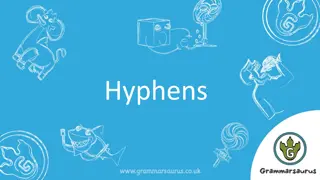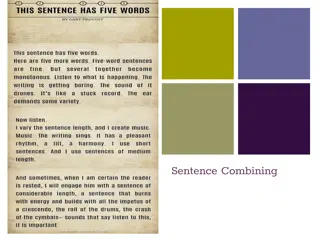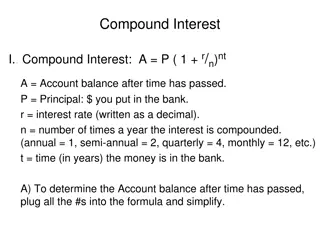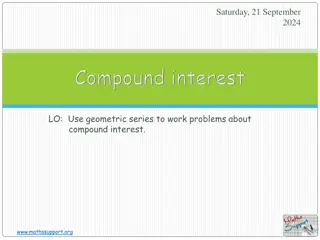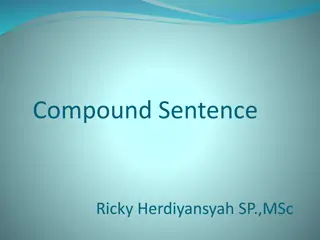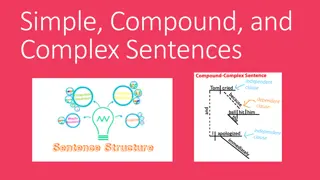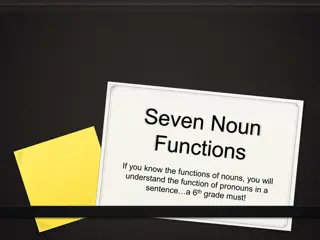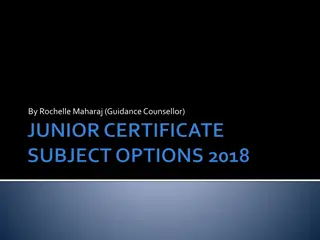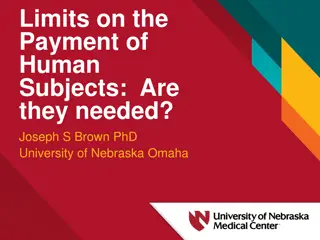Understanding Compound Subjects in Grammar
Compound subjects joined by "and" usually require plural verbs, while compound subjects joined by "or," "nor," "either or," or "neither nor" may be singular or plural depending on the subject closest to the verb. Recognizing when to use singular or plural verbs with compound subjects is essential for proper grammar usage.
Download Presentation

Please find below an Image/Link to download the presentation.
The content on the website is provided AS IS for your information and personal use only. It may not be sold, licensed, or shared on other websites without obtaining consent from the author. Download presentation by click this link. If you encounter any issues during the download, it is possible that the publisher has removed the file from their server.
E N D
Presentation Transcript
Writing Lab Agreement- Compound Subjects
Compound Subject Joined by And Compound subjects joined by and usually require plural verbs. Example: Books and films are available at the library. Example: Jasmine and Rita forget to take their lab tests each week. Example: A pencil and notebook paper are needed to take the exam.
Compound Subjects as a Single Idea Sometimes a compound subject stands for a single idea or concept. Then, the compound subject requires a singular verb. Example: Love and Rockets is my favorite band. Example: Snow White and the Seven Dwarfs is my favorite fairy tale. Example: Thelma and Louise stars Susan Sarandon and Geena Davis.
Compound Subjects Joined by Or, Nor, Either Or, Neither Nor Compound subjects joined by or, nor, either or, or neither nor may be singular or plural depending on the subject that is closer to the verb. Example: Carrie or Will takes the mail to the post office everyday. Example: Neither Domingo nor Miguel plays the banjo. Example: Either John or his children are going to Canada next week.
Thats all, folks! This lesson is part of the UWF Writing Lab Grammar Mini-Lesson Series Lessons adapted from Real Good Grammar, Too by Mamie Webb Hixon To find out more, visit the Writing Lab s website where you can take a self-scoring quiz corresponding to this lesson






